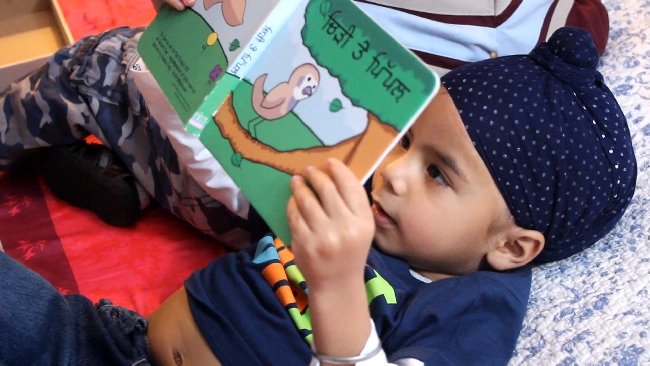|
The Punjabi folk tale-teller |
|
Review by Arvinder Singh Kang
The fondest memories I have from my childhood in Punjab are that of laying on a cot on our home terrace under a starry sky, while listening to the "baatan" - Punjabi fables and folktales. My learning of Gurmukhi grammar came much later from"Kaide" and my recognition of the Punjabi words came from the rhyming stories that my parents and grandparents, and sometimes my elder siblings would recite to us younger ones.
The sparrow was always the hardworking one, the crow usually a cunning fellow - my early lessons of perseverance. The wolf was ferocious and blind in pride, often fooled by the timid and noble sheep - the lessons of bravery over power. The lion was ferocious, yet painstakingly noble in the decisions it made - giving me an early appreciation that the title of the king ("Singh") has it own weight of responsibilities to carry on one's shoulders. And with changing times as these folk tales, handed down many generations and perfected over thousands of years by our forefathers who lived in the land of Raavi, Satluj, Beas, Chenab and Jhehlum are being lost; and so is the treasure of moral values they taught. Gurmeet is not a newcomer to the land of Sikh and Punjabi literature. A technologist by profession, she has a penchant for writing. She is a regular contributor at SikhChic.com and many other diaspora forums and news outlets. She has written extensively on Sikh and Punjabi Diaspora issues.
The outcome is a set of three beautifully designed and typeset books - "The Sparrow and the Pippal", "The Sparrow and the Crow" and "The Lamb and the Dhol". Printed as heavy, laminated board books, the three books are typeset in Gurmukhi. Romanized Punjabi (transliteration) and English translations are included on the last pages of each book, for the first time Punjabi readers to get their pronunciations and meanings right. Unlike many other writers of the domain, who end up following the loanwords of Hindi language to describe Punjabi words, Gurmeet takes a stand. It is "Pippal", and not "Peepal" - such is the joy of language used, that in its correct pronunciation, the tree seem to bear the same leaves, the shade brings the same cool breeze, as it would on a hot June day, beside a well in the fields of Panjab. Like the Aesop's fables, each folktale carries a lesson of morality - in a gentle, fun and Punjabi way. The sparrow and the Crow conveys a message of honesty and hard work, and the perils of laziness. The Sparrow and the Pippal provides valuable insights in persistence and patience (and also a lesson in recursion for would be computer buffs - but that is another story). The Lamb and the Dhol teaches that bravery and smarts will win over the toughest of times. The eternal Guru, Guru Granth Sahib on page 951 says "The stories of one's ancestors make the children into good children."Our folktales carry the wisdom of a people that used to live in a land called Punjab, that is fast slipping away from our hands. These stories have the gist of morality and the kernels of truth that will never change. Our experiences will change, our narrations will differ, but our lessons of right and wrong, the ones that feel "right" from within; will come from the ones that we learnt when we were a blank slate; the mind of a child.
Our singers and actors, religious leaders and politicians alike often stress on the idea of preserving our culture. To me, culture is nothing more than the way of life of a people of a place and time. And as time changes, as we move on to create new cultures, the wiser ones retain and preserve the best of the past and shed the worst to replace with the new. A rich source of the "good" from our past, of our mother land, Punjab, resides in folktales passed on to our generations via the ones that came before us. It is about time that we retold the good old tales in new ways, using new media. Gurmeet Kaur's "Fascinating Folktales of Punjab" is a cherished first attempt for this very cause - a must have for every Punjab and Punjabi loving household, playgroup or school. For more information or to buy, please visit www.folktalesofpunjab.com ----- Arvinder Singh Kang (@askang) is a technologist, writer and a doctoral candidate in the Department of Computer Science at the University of Mississippi. He is a long term contributor to Punjabi Open Source Team and the founder of Vehdaa Magazine (Vehdaa.com) which is a collection of interviews of Punjabi residents and the diaspora available both in Gurmukhi and English. -----
Video Trailer (English) of the book "Fascinating Folk tales of Punjab" Video Trailer (Punjabi) of the book "Fascinating Folk tales of Punjab" |
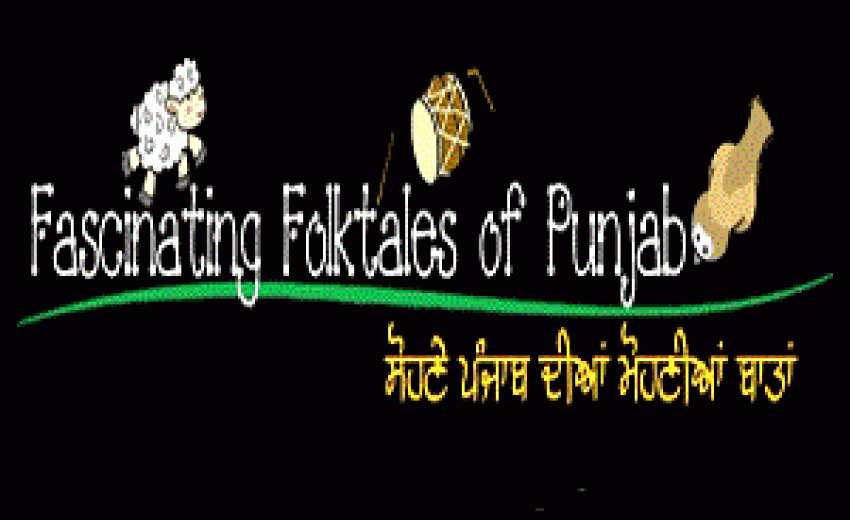
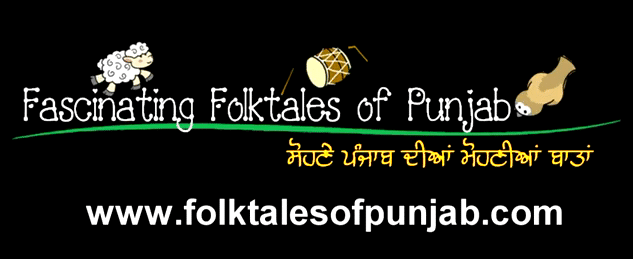
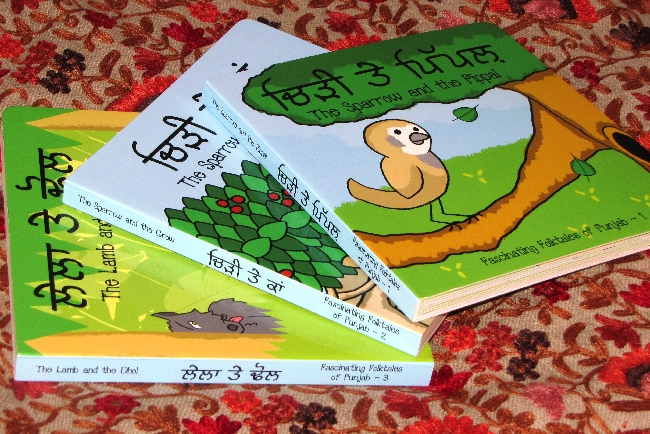
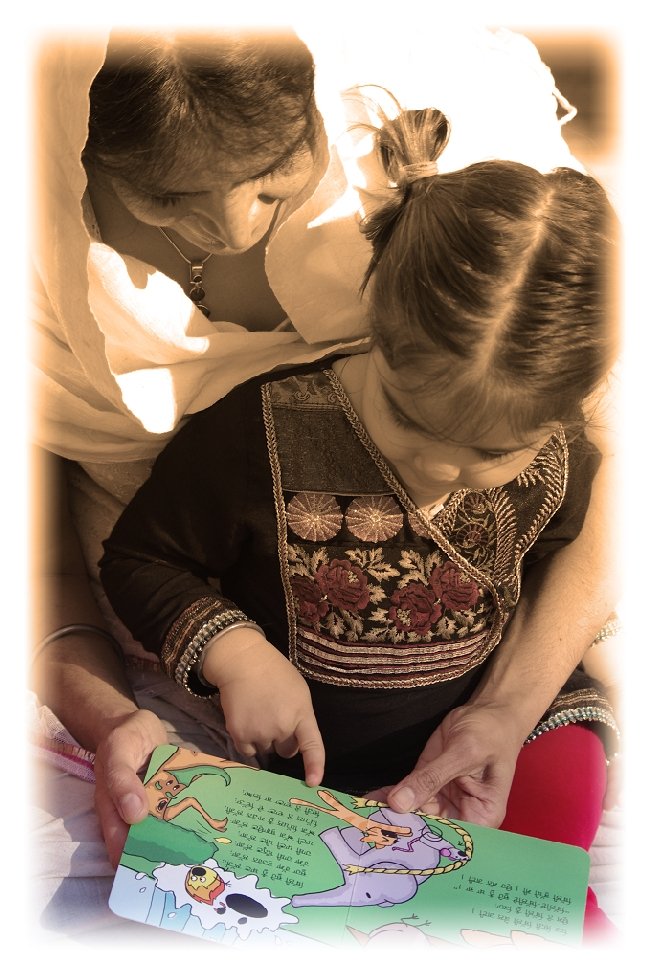 In Gurmeet's own words, she devised the idea of a set of illustrated folktales book while searching one for her own daughter. She either found "Kaide" - the alphabet books or the books for grown-ups. She decided to bridge the gap by taking the project upon herself. Recollecting the stories from her childhood and gathering them from Punjabi books collected over many years, she selected a set of folktales of Panjab to develop. Later came the process of setting them as rhyming picture books suitable for all ages, full of charming characters and colorful ambience to breathe more life into the tales. And then, the whole process of getting it to the world - a process that every first time publisher dreads.
In Gurmeet's own words, she devised the idea of a set of illustrated folktales book while searching one for her own daughter. She either found "Kaide" - the alphabet books or the books for grown-ups. She decided to bridge the gap by taking the project upon herself. Recollecting the stories from her childhood and gathering them from Punjabi books collected over many years, she selected a set of folktales of Panjab to develop. Later came the process of setting them as rhyming picture books suitable for all ages, full of charming characters and colorful ambience to breathe more life into the tales. And then, the whole process of getting it to the world - a process that every first time publisher dreads.